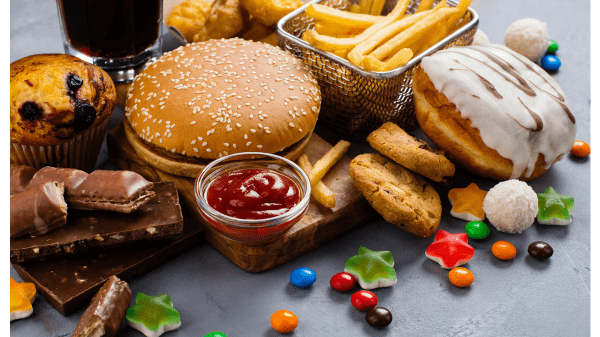
When I think of the cuisine of America’s heartland, I think of an old-time home-cooked meal: pot roast or chicken, mashed potatoes, cut corn, and string beans, all served family-style, with plenty of gravy.
The truth appears to be quite different.
America’s heartland is apparently fast-food nation.
PriceListo, a consumer pricing platform, conducted a survey of the states where fast food features most prominently.
All of the top states were in the American heartland or the South.
At the top was Nebraska, followed in order by Indiana, Tennessee, Ohio, Alabama, Kentucky, Missouri, South Dakota, Arkansas, and Oklahoma—far from the biggest urban centers.
Vermont, at the bottom, was the state most apathetic to fast food, followed in order by New Jersey, New York, New Hampshire, Massachusetts, Alaska, Maine, Rhode Island, Delaware, Hawaii, and Connecticut.
Illinois, Blue Book’s home state, came in at 29 from the top. But then Illinois usually ends up in the middle of most rankings of almost any sort.
The study “examined Google Trends data to analyze the past 12 months of Google searches across America for search terms frequently associated with fast food. These terms were then combined to give each state a total score to discover the states with the most fast-food-obsessed residents,” the company’s press release explains.
The findings stand to reason. The states at the top are likely to have the fewest nonchain restaurants.
In 1989-90, I lived in Knoxville, TN. I quickly noticed that if you left out fast-food places, as well as chains like Chili’s and Olive Garden, you wouldn’t have too many places to eat out.
I haven’t been back to Knoxville in 20 years, and I’m sure it’s much more sophisticated now. But many parts of the nation aren’t.
This is not just disappointing news for foodies. Produce items feature sparsely in fast-food places.
PriceListo gives a sample menu from Kentucky Fried Chicken. KFC Menu Prices (2022) – PriceListo
The list is a long one. The only fresh produce item that appears is coleslaw.
The same is true for other fast-food places. Stung by the accusation of the 2004 documentary Supersize Me, which showed the damage done by a month of a McDonald’s diet on the unfortunate subject, the chain did introduce salads for a while, but who goes to McDonald’s for a salad?
I don’t find salads on this McDonald’s menu.
Although some of the sandwiches (McChicken, etc.) featured some lettuce, and a side of apple slices is available. That’s it.
It’s never a good idea to look around for enemies, but the predominance of fast food is probably the single greatest obstacle to greater produce consumption in this nation.
When I think of the cuisine of America’s heartland, I think of an old-time home-cooked meal: pot roast or chicken, mashed potatoes, cut corn, and string beans, all served family-style, with plenty of gravy.
The truth appears to be quite different.
America’s heartland is apparently fast-food nation.
PriceListo, a consumer pricing platform, conducted a survey of the states where fast food features most prominently.
All of the top states were in the American heartland or the South.
At the top was Nebraska, followed in order by Indiana, Tennessee, Ohio, Alabama, Kentucky, Missouri, South Dakota, Arkansas, and Oklahoma—far from the biggest urban centers.
Vermont, at the bottom, was the state most apathetic to fast food, followed in order by New Jersey, New York, New Hampshire, Massachusetts, Alaska, Maine, Rhode Island, Delaware, Hawaii, and Connecticut.
Illinois, Blue Book’s home state, came in at 29 from the top. But then Illinois usually ends up in the middle of most rankings of almost any sort.
The study “examined Google Trends data to analyze the past 12 months of Google searches across America for search terms frequently associated with fast food. These terms were then combined to give each state a total score to discover the states with the most fast-food-obsessed residents,” the company’s press release explains.
The findings stand to reason. The states at the top are likely to have the fewest nonchain restaurants.
In 1989-90, I lived in Knoxville, TN. I quickly noticed that if you left out fast-food places, as well as chains like Chili’s and Olive Garden, you wouldn’t have too many places to eat out.
I haven’t been back to Knoxville in 20 years, and I’m sure it’s much more sophisticated now. But many parts of the nation aren’t.
This is not just disappointing news for foodies. Produce items feature sparsely in fast-food places.
PriceListo gives a sample menu from Kentucky Fried Chicken. KFC Menu Prices (2022) – PriceListo
The list is a long one. The only fresh produce item that appears is coleslaw.
The same is true for other fast-food places. Stung by the accusation of the 2004 documentary Supersize Me, which showed the damage done by a month of a McDonald’s diet on the unfortunate subject, the chain did introduce salads for a while, but who goes to McDonald’s for a salad?
I don’t find salads on this McDonald’s menu.
Although some of the sandwiches (McChicken, etc.) featured some lettuce, and a side of apple slices is available. That’s it.
It’s never a good idea to look around for enemies, but the predominance of fast food is probably the single greatest obstacle to greater produce consumption in this nation.
Richard Smoley, contributing editor for Blue Book Services, Inc., has more than 40 years of experience in magazine writing and editing, and is the former managing editor of California Farmer magazine. A graduate of Harvard and Oxford universities, he has published 12 books.




